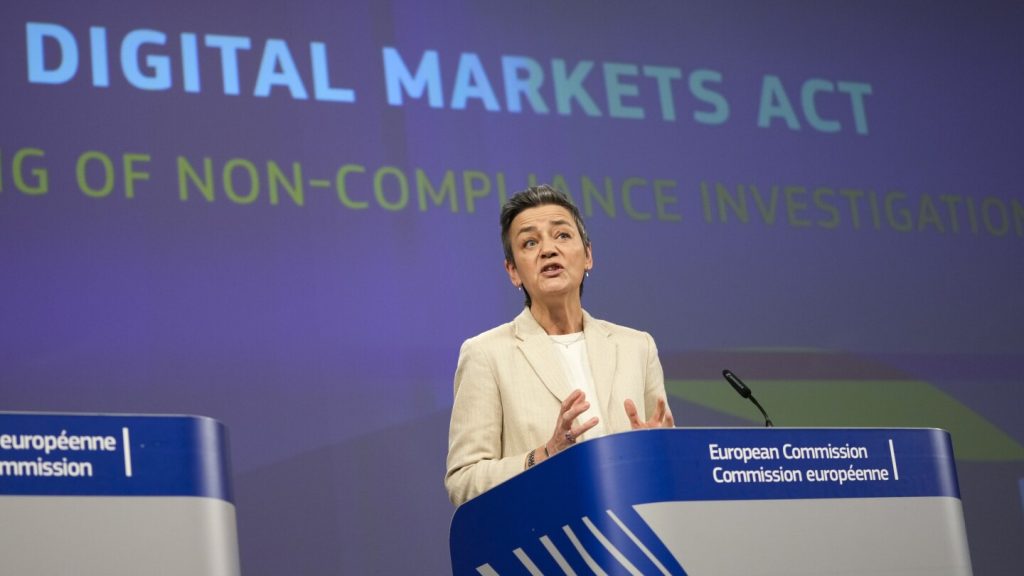European Union regulators have launched investigations into tech giants Apple, Google, and Meta for possible non-compliance with the new Digital Markets Act. This law aims to prevent Big Tech companies from monopolizing digital markets by imposing a set of rules on gatekeeper companies providing core platform services. The European Commission, which oversees the enforcement of this law, has received complaints that the companies are not fully complying with the regulations, prompting investigations into their practices.
The commission’s decision has sparked pushback from industry groups like the Computer & Communications Industry Association, which represents tech and communications companies. They argue that the timing of the investigations, while compliance workshops are still ongoing, could politicize the process. The companies under investigation have been ordered to preserve certain documents that may be used in current and future investigations, highlighting the seriousness of the situation.
Regulators are focusing on whether Google and Apple are adhering to the DMA’s requirement to allow app developers to direct users to cheaper options outside their app stores. Concerns have been raised about restrictions and fees that prevent fair competition in the digital marketplace. Google, in response, has stated that it has made significant changes to comply with the regulations and will continue to defend its approach. Similarly, Apple is confident that its plan is in line with the DMA and has introduced new developer capabilities to comply with the law.
Meta, formerly known as Facebook, is also under scrutiny for its subscription model that allows European users to pay for ad-free versions of its platforms. The commission is concerned that this binary choice of paying or consenting to ads may not provide a real alternative for users who do not wish to consent, potentially undermining the aim of preventing data accumulation by gatekeepers. Meta has expressed a willingness to engage with the commission and defend its business model, stating that subscriptions are a common industry practice and designed to comply with regulatory obligations.
The investigations are part of the commission’s broader efforts to ensure fair competition in digital markets and prevent tech giants from abusing their dominant positions. The regulatory scrutiny emphasizes the need for transparency and accountability from these companies to avoid anticompetitive practices. The commission aims to conclude its investigations within 12 months and will continue to monitor the tech industry closely to ensure compliance with the Digital Markets Act. This marks the beginning of a new era of oversight for Big Tech in Europe, with potential consequences for how digital markets operate in the future.


